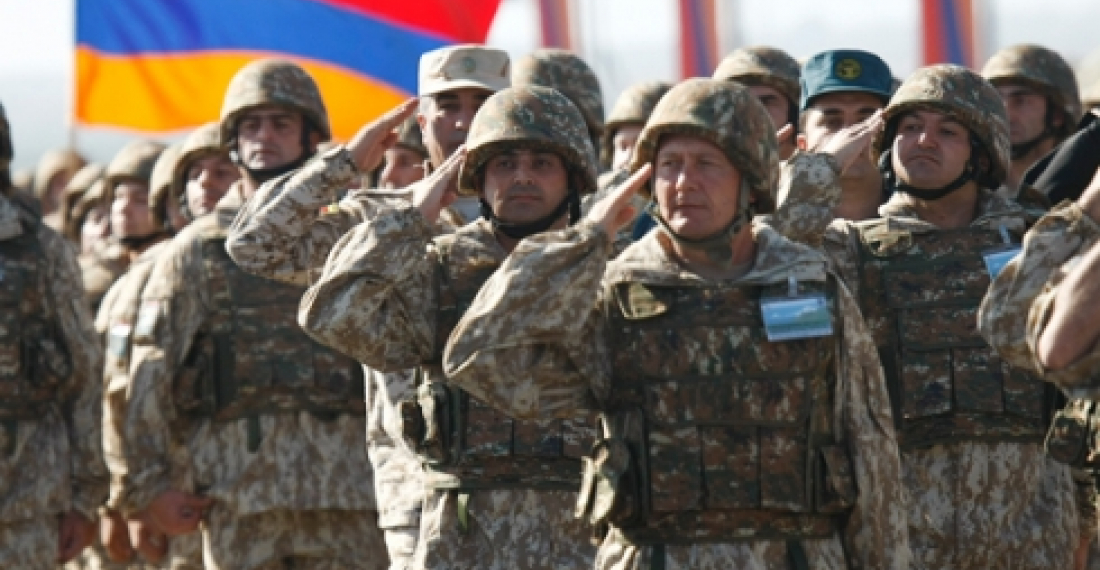Parents of Armenian army recruits who died in recent years are concerned that they are not being told the truth about the circumstances of the deaths. The NGO "Peace Dialogue" is leading a campaign for more information. Edgar Khachtryan writes from Vanadzor for commonspace.eu
The Armenian NGO "Peace Dialogue" has launched a video campaign called "We Have a Right to Know the TRUTH!" The campaign consists of a series 30-second video-interviews with members of the families of soldiers who died in the Armenian Army in non-combat conditions. The focus of the videos is to allow the relatives to express their right to know what happened to their sons, husbands and brothers. We have found in our work documenting these deaths in the Safe Soldiers for a Safe Armenia project that many families do not believe the version of the "fatal accidents" that resulted in the death of their family members that is often the official explanation of the deaths given to families.
According to several civil society groups, more than 200 soldiers have died in the Armenian Military during the last five years (For more information see www.safesoldiers.am). Many died as a result of violations of the cease-fire regime signed between Armenian and Azerbaijanis in 1994 after the Nagorno-Karabakh war. However, during these same years many others died as a result of other internal issues: suicides, murders, fatal incidents or because of lack of access to medical service in their military units.
At the end of 2014, "Peace Dialogue" filed a lawsuit in order to obtain information on the fatalities of persons serving in the military from the Ministry of Defense in Armenia (MoD). The Administrative Court of the Republic of Armenia (RA) has now decided to allow the lawsuit to proceed and will soon hold hearings on two cases related to this most important issue.
The first case would oblige the Ministry of Defense to provide information including; the full names of the deceased soldiers, the location of the incident, the date, unit number, unit commander's full name and title, the cause of death and all other publicly available information. The second part of the lawsuit calls for administrative penalties against Defence Minister Seyran Ohanyan for ignoring the requests to provide this information, as his Ministry is required to do under Armenian law.
Recently two state institutions: the MoD and the General Prosecutor's office refused to provide related information to other civil society groups on this issue. They justified their refusal, by explaining that the required information is classified, was not to be published and could only be viewed with restricted access.
"Peace Dialogue" argues that the required information should not be classified, as it does not fall under the restrictions prescribed in the RA legislation. Furthermore, the MoD had previously provided the same information to "Peace Dialogue" for the time period of 2010 to 2011. Apart from that, some of the information requested by "Peace Dialogue" is already being released by the MoD in its own press releases and public statements. The Armenian legislation prescribes that even in cases when the inquiry contains classified information, the officials are still obliged to provide the rest of the information, which was not what happened in this situation.
A number of cases have been recorded by "Peace Dialogue" and other watchdog groups in Armenia, which clearly show that sometimes the official version does not reflect what really happened. "Peace Dialogue" argues that investigative bodies have violated legal procedures during the preliminary investigation or/and judicial processes. In some cases civil society oversight of the military, made it possible to reach a reasonable resolution of the issues.
The "We Have a Right to Know the TRUTH!" campaign aims at increasing public accessibility to information regarding the fatal casualties in the army. "Peace Dialogue" believes that this accessibility will help form public demand for more transparency in order to prevent additional illegalities and falsifications of the investigations in the Armenian Army.
Source: Edgar Khachtryan contributed this article to commonspace.eu
Photo: The Armenian Army on parade. Parents of army recruits who died in recent years are however concerned that they are not being told the truth about the circumstances of the deaths (archive picture).







